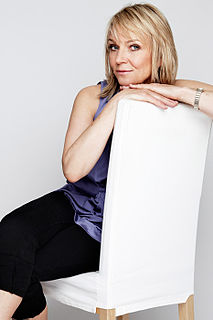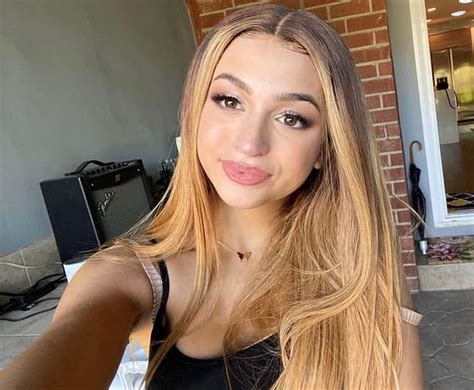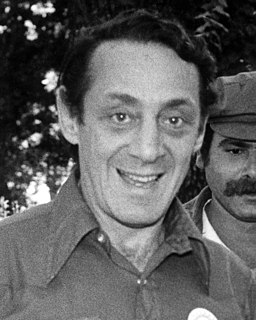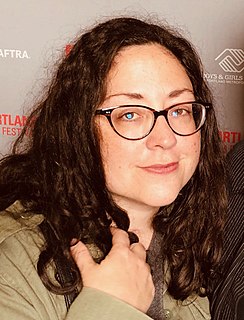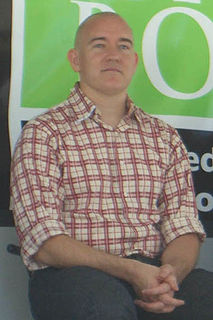A Quote by Ira Sachs
I think I tend to feel discomfort more when I anticipate or arrive upon moments in which I need to be careful. As a gay person, there's the fear of violence, and we're not making that up.
Related Quotes
I've always been terrified of violence which is probably why I keep making violent films - I'm trying to exorcise some demons or something. My mum ended up bringing me up on the edge of a big estate in south London, so I was on the periphery of violence - a lot of football violence and stuff because I was a Millwall supporter. So I've always had a very healthy fear of it, yet at the same time a fascination. I think in all of my films that's a really strong subtext... people who are terrified by violence but are yet compelled by it as well.
There are tons of gay issues that are important, from gay marriage to adoption rights to work-place discrimination and more... but I think the biggest gay issue is the level of involvement of the gay community to demand change. So many gays think that other gays will take care of it. To fix this, people need to realize that they CAN make a change, but no one person can do it alone.
Life is challenging. I wish I could tell you that you’ll always be on top of the mountain, but the reality is that there are days when nothing will go right, when not only will you not be on top, you may not even be able to figure out which way is up. Do yourself a favor, and don’t make it any harder than it has to be. In those moments, be careful how you speak to yourself; be careful how you think of yourself; be careful how you conduct yourself; be careful how you develop yourself.
Violence is not merely killing another. It is violence when we use a sharp word, when we make a gesture to brush away a person, when we obey because there is fear. So violence isn't merely organized butchery in the name of God, in the name of society or country. Violence is much more subtle, much deeper, and we are inquiring into the very depths of violence.
I think treating a model as nothing but a collection of tendons is done to lessen people's discomfort with the fact that they are looking at a naked person. They think it makes the audience and model more comfortable. But that was not the case when I modeled and I find that others agree. I feel that the sexual component is essential. I feel it is much more objectifying to be a table than a beautiful naked girl.
I think, almost, the film industry thinks that by making gay characters super masculine, it's an attempt at saying being gay is OK if you act like straight people. I don't think we should just have gay characters who are 100 percent femme, either. I just think it's about that mix and creating more diverse gay characters.
I'm so sick of seeing guns in movies, and all this violence; and if there was going to be violence in Pines, I wanted it to actually be narrative violence. I wasn't interested in fetishizing violence in any way of making it feel cool or slow-motion violence. I wanted it to be just violence that affected the story.
Fear keeps us rooted in the past. Fear of the unknown, fear of abandonment, fear of rejection, fear of not having enough, fear of not being enough, fear of the future-all these fears and more keep us trapped, repeating the same old patterns and making the same choices over and over again. Fear prevents us from moving outside the comfort-or even the familiar discomfort-of what we know. It's nearly impossible to achieve our highest vision for our lives as long as we are being guided by our fears.
My approach to violence is that if it's pertinent, if that's the kind of movie you're making, then it has a purposeI think there's a natural system in your own head about how much violence the scene warrants. It's not an intellectual process, it's an instinctive process. I like to think it's not violence for the sake of violence and in this particular film, it's actually violence for the annihilation of violence.
The competition between human beings destroys with cold and diabolic brutality... Under the pressure of this competitive fury we have not only forgotten what is useful to humanity as a whole, but even that which is good and advantageous to the individual. [...] One asks, which is more damaging to modern humanity: the thirst for money or consuming haste... in either case, fear plays a very important role: the fear of being overtaken by one's competitors, the fear of becoming poor, the fear of making wrong decisions or the fear of not being up to snuff...
What I like about Layer Cake is its intelligent through-line. First of all, I think it's very close to the truth; I think this is what successful drug dealers are like. They don't drive around in flashy cars, they don't show off, they behave very quietly, they get on with their job and they earn lots of money. And it goes up and up and up and up the scale. Secondly - and selfishly - I like the moral aspect of the movie, which is that violence has consequences, and you feel emotionally involved with the violence.
Because gay people were so much more visible, violence against gays was more common and reported on. But they were definitely related to each other. In the wake of AIDS, gay people felt like they had to organize, become much more active and visible. AIDS fostered a gay rights movement that made gay people more powerful and more vulnerable at the same time.



